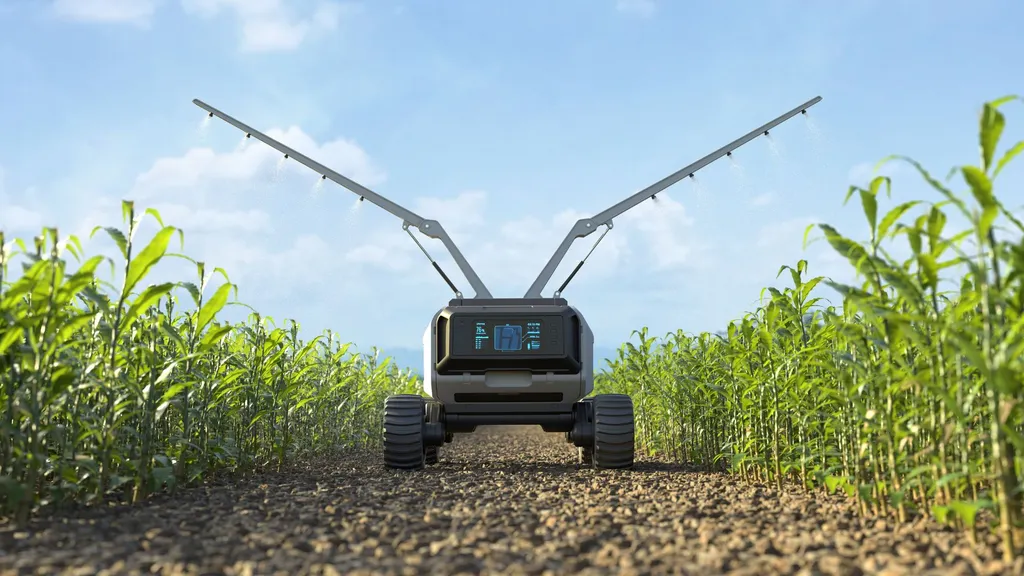In the heart of Iraq, a quiet revolution is taking place in the fields of precision agriculture. Ameer H. Al-Ahmadi, a researcher from the Department of Agricultural Machines and Equipment at the University of Baghdad, has developed a smart sprayer that could transform how farmers control weeds, reducing chemical use and environmental impact. This innovation, detailed in a recent study published in the *Journal of Plant Protection Research* (translated to English as “Journal of Plant Protection Research”), is a significant step towards sustainable farming practices.
Al-Ahmadi’s smart sprayer is equipped with an object detection algorithm, YOLOv5, which enables it to identify weeds with remarkable accuracy. The sprayer operates in two modes: variable rate and constant rate application. The variable rate mode, which adjusts the spray according to the presence of weeds, demonstrated impressive results. “The variable rate mode resulted in a high precision, recall, and accuracy in detecting weed and applying herbicide that was 90%, 100%, and 94%, respectively,” Al-Ahmadi explained. This precision ensures that herbicides are used efficiently, minimizing waste and reducing the environmental footprint.
The implications of this technology extend beyond mere efficiency. By reducing the amount of herbicide used, farmers can lower their operational costs significantly. Moreover, the decreased chemical runoff can help protect local ecosystems and water sources, a critical consideration in an era of increasing environmental awareness. “The spray coverage, droplet density, and the deposition on weed using the variable rate mode were 34.16%, 127.64 deposits ∙ cm–2, and 7.67 μl ∙ cm–2, respectively,” Al-Ahmadi noted, highlighting the precision and effectiveness of the system.
The smart sprayer’s ability to maintain consistent performance across different travel speeds adds another layer of flexibility for farmers. This adaptability can be particularly beneficial in large-scale farming operations, where varying conditions and terrains are common. The technology’s potential to integrate with other precision agriculture tools could further enhance its utility, making it a cornerstone of modern farming practices.
As the world grapples with the challenges of climate change and sustainable resource management, innovations like Al-Ahmadi’s smart sprayer offer a beacon of hope. The research not only addresses immediate agricultural needs but also paves the way for future developments in precision agriculture. By continuing to refine and expand these technologies, we can look forward to a future where farming is not only more efficient but also more sustainable and environmentally friendly.
In the words of Al-Ahmadi, “This technology represents a significant step forward in our quest for sustainable agriculture. It’s not just about controlling weeds; it’s about protecting our environment and ensuring the long-term viability of our farming practices.” As we move forward, the integration of such smart technologies into mainstream agriculture could very well redefine the landscape of farming, making it more resilient and adaptable to the challenges of the 21st century.

